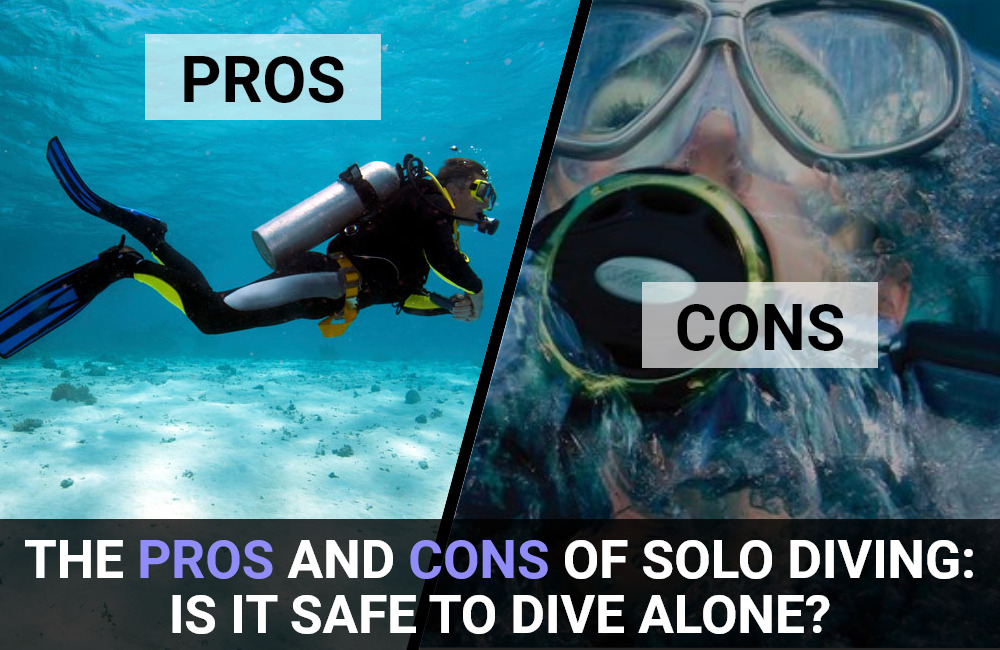You may have considered taking a solo dive. Whether it’s to take in if you’re an avid diver the sights of the ocean on your terms or just to challenge yourself and see what lies beyond, diving alone presents its fair share of benefits – but also several risks that must be managed for such activities to be safe. In this blog post, we’ll explore the pros and cons of solo diving and discuss some essential tips for anyone looking to dive into uncharted waters. Read on and find out if solo diving is right for you!
Solo diving is an extreme and hazardous form of recreational scuba diving where the diver takes on the dangerous task of diving alone. Often overlooked by inexperienced divers, solo diving can be a thrilling experience for experienced divers wanting to explore complex depths. As there is no one to monitor your safety, extensive preparation and research are necessary before embarking on a solo dive. Divers should bring extra oxygen tanks, GPS navigation gear, and other emergency gear in case of difficulty during the dive. Due to its potential risks, it is advised that all solo dives should be registered with a dive partner or charter company.
Debating the pros and cons of solo diving is critical to making an educated decision about whether to engage in this activity. It is essential to understand the risks associated with being underwater alone and the potential rewards.
When considering a solo dive, evaluating which safety measures are necessary and the potential enjoyment of independent freediving is helpful. Assessing both advantages and disadvantages of solo dives allows for a more enlightened decision-making process that supports one’s physical and mental well-being.
Solo diving should not be underestimated. Although it can be an undeniably liberating experience, with no need for partners or groups, there are also potential dangers to consider. These include a lack of emergency assistance, maritime issues, and deteriorating weather conditions that can make a dive much more challenging than initially anticipated. As a result, anyone considering solo diving should prepare adequately and thoroughly understand the risks involved before embarking on their next underwater adventure.
Advantages of Solo Diving
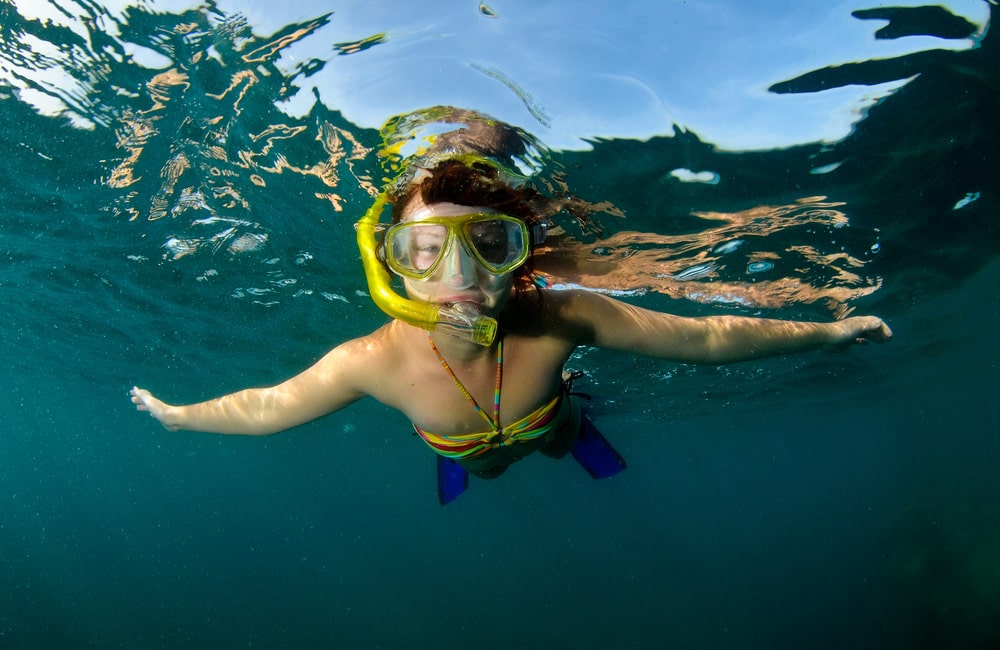
Solo diving is a growing trend for many experienced scuba divers looking for a unique underwater experience. It is considered a high-risk activity but can provide incredible freedom and accomplishment for those who take the plunge. Solo diving allows individuals to explore new p when done with proper training and preparation places without the limitations of being in a group, allowing them to move at their own pace and make independent decisions. Solo divers develop better physical fitness through increased cardiovascular activity and improved buoyancy control. Additionally, they become empowered as they solve problems independently and gain more significant skill levels while developing strong problem-solving capabilities that benefit their future dives.
Flexibility and freedom
This particular type of dive offers maximum flexibility and freedom enabling a diver to have unchecked control of the dive plan from a time management and safety perspective; without the time constraints or scheduling compromises of having to adjust to group dive times, depths, and locations
Self-reliance and independence
Solo diving encourages improved self-reliance, autonomy, and independence – qualities essential for any experienced diver who values safety. As a result of these traits, solo divers are often more disciplined when it comes to dive briefing and planning and also spend time honing their dive skills to ensure they have control over their dives.
Ability to focus on individual goals and interests
By diving as an individual, you can focus solely on your goals and interests without distractions. Solo diving can improve skills such as buoyancy that may not be available when diving in a group. You also can travel at your own pace, follow your schedule, and explore places that might otherwise go unnoticed.
Risks and Drawbacks of Solo Diving
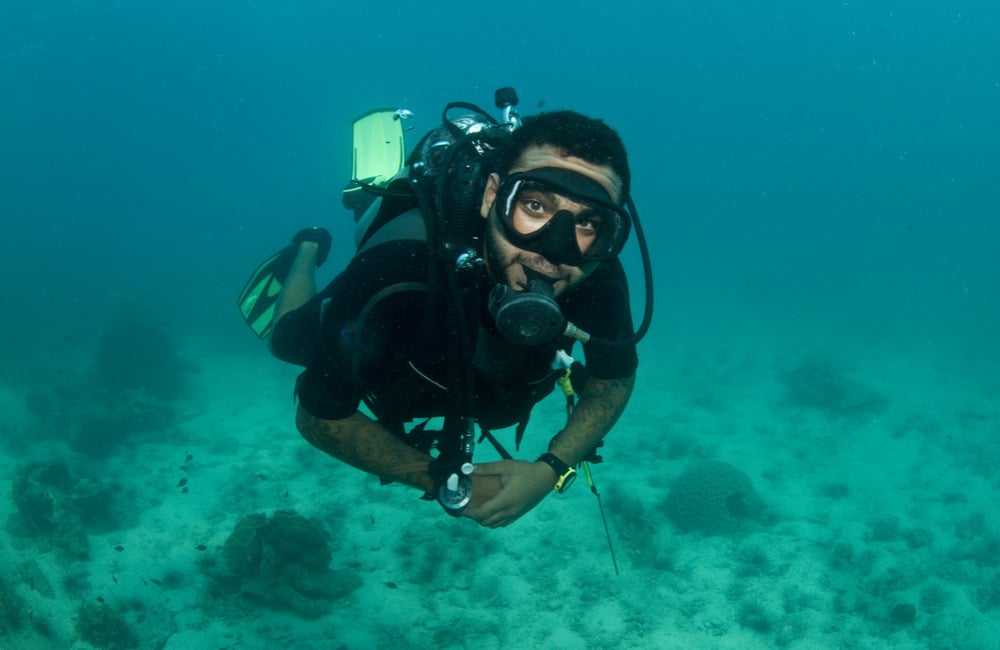
Solo diving is one of the riskiest activities that a diver can undertake. Without the aid of a partner, divers face much greater danger if an accident occurs underwater. It’s essential for individuals to carefully consider the drawbacks of going solo before taking the plunge. Divers must also ensure they remain within their skill and experience level when attempting any dives, even under normal circumstances. Unfortunately, self-evaluation tends to be more subjective in the absence of a partner. It limits a diver’s ability to objectively assess their skills and the risks associated with going it alone. Further, solo diving introduces new responsibilities, such as carrying extra safety gear for just-in-case scenarios, which can increase both dive time and effort. In conclusion, while solo diving can be incredibly rewarding and deeply calming, there are substantial risks.
Increased risk of accidents and emergencies
Solo diving is an extreme sport that presents unique physical and mental challenges and should only be attempted by experienced divers. As enjoyable as it can be, it involves a higher safety risk than diving when accompanied by a partner or group due to the increased possibility of accidents and emergencies. If a solo diver gets into difficulty, they will have no one to help them or call for assistance – ensuring you are both well-equipped and knowledgeable before attempting solo dives.
Lack of support and assistance from a dive buddy
Divers have to confront potential equipment failure or other technical problems alone. The professional without a dive buddy’s dive buddy dance can also help prevent inexperienced divers from pushing themselves beyond their safety boundaries.
Potential for equipment failure or other technical problems
Solo diving presents potentially dangerous risks due to insufficient assistance in emergencies. A diver only has to rely on if their equipment malfunctions or something unexpected happens, such as running out of air, illness, or even injury. In addition, the risk of a solo diver becoming lost or disoriented is higher than when two people are together, as help from a dive buddy could potentially be compromised in a varivarious
Psychological and emotional challenges
Furthermore, solo diving presents psychological and emotional challenges to the diver as they are making independent decisions in a potentially dangerous environment and running the risk of suffering from ‘solo panic’ due to the lack of support available should any problems arise.
Factors to Consider When Deciding Whether to Solo Dive
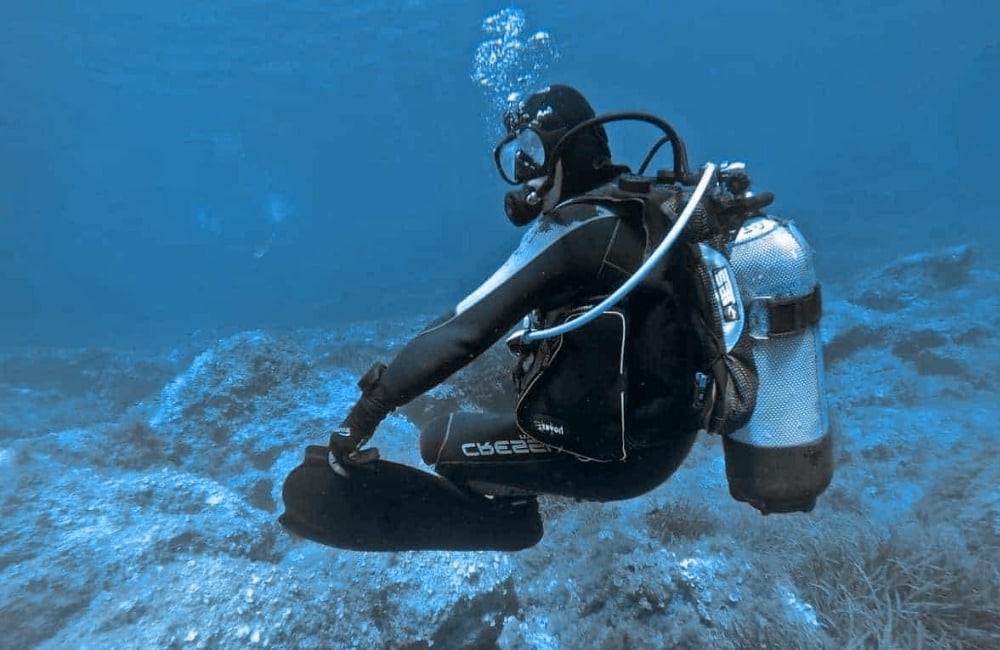
Following are some of the factors to consider when deciding whether to dive solo or not.
Experience and skill level
When considering whether you should solo dive, it is essential to consider multiple factors. Foremost, experience and skill level are critical components. Those with less diving experience should avoid solo diving until they have developed the knowledge and abilities to mitigate risks.
Type of diving and dive location
The type of diving and dive location will affect the dive’s difficulty. You understand what each environment entails.
Equipment and preparation
It’s also essential that all equipment is tested and that preparation is done thoroughly beforehand, as a small mistake can have severe implications while alone underwater.
Personal comfort level and risk tolerance
Finally, before deciding to venture out on your own, reflect on your comfort level and risk tolerance; some may be comfortable enough to swim through depths unassisted, while others may prefer to feel more secure with a dive buddy.
Strategies for Safe Solo Diving
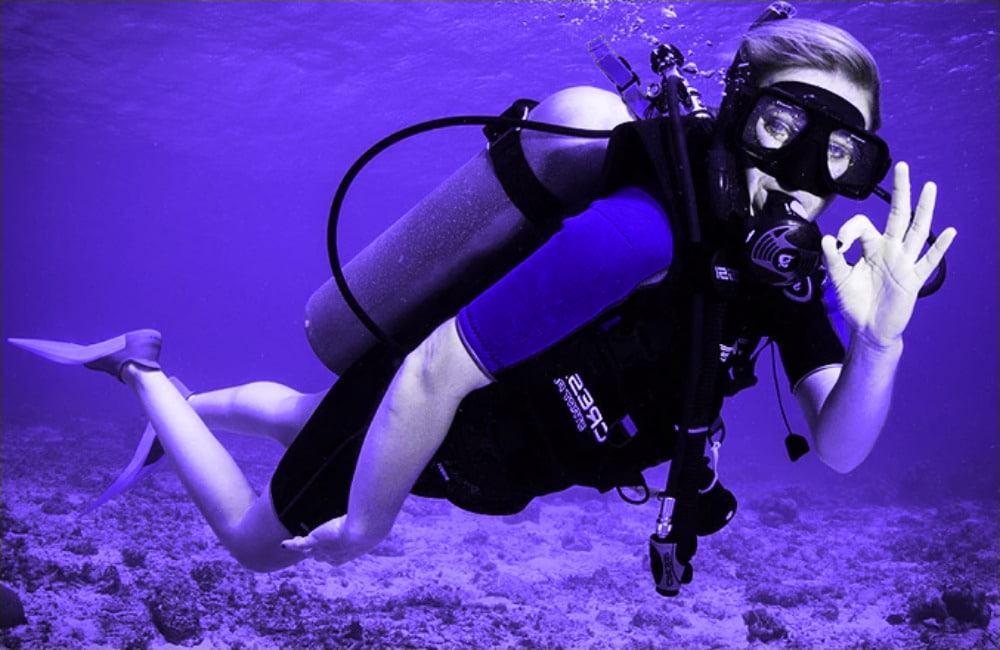
Solo diving is a potentially hazardous activity, so planning and preparation are essential to ensure. When embarking on a solo dive, divers should make a surbuddy system. Following are some of the strategies for safe solo diving.
Pre-dive planning and preparation
Solo diving can be an incredible experience, provided all proper safety protocols are followed. Before every dive, divers should create an in-depth plan and conduct thorough preparation.
Use of safety equipment and redundancy measures
Secondly, strong consideration should be given to using personal safety equipment – such as submerged marker buoys and dive computers – and redundancy measures, like bringing a backup regulator.
Monitoring and managing risks during the dive
Thirdly, divers need to maintain awareness of their environment during the dive by monitoring potential risks and responding accordingly.
Post-dive debrief and analysis
Finally, after surfacing, divers should ensure they debrief on the dive, analyzing what worked well and any areas that need improvement. When done correctly, solo diving can be a safe and enjoyable undertaking.
Conclusion
To conclude, while solo diving has pros and cons, it can be done safely as long as divers take the necessary precautions and dive with vigilance. Through adequate preparation and familiarity with the environment, divers can establish the boundaries for safe solo diving. Furthermore, it allows divers to gain confidence and more significant experience through individual exploration.
Divers need to recognize their physical capabilities versus potential mental harm resulting from hazardous conditions or lack of understanding of equipment management to ensure a safe solo dive—so go out there with caution.
We encourage interested parties to research extensively about, especially, the type of diving in which one intends to engage before undertaking any dives. With education and self-awareness, all divers are better equipped to make an informed decision about whether or not they should venture out and dive alone.
The Pros and Cons of Solo Diving: Is It Safe to Dive Alone? The answer is yes; it is possible! So if you’re looking for an adventure that offers a unique experience but is sure to educate yourself thoroughly first.
